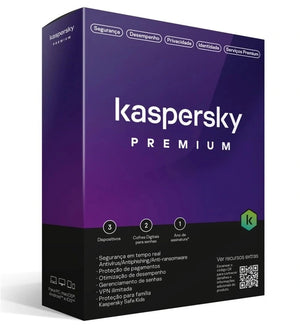The operating system is the heart of any personal computer, playing a key role in the user experience. With the release of Windows 11 , many users were curious about the changes and improvements over its predecessor, Windows 10 .
Windows 10 has been a mainstay in the world of personal computing for years, garnering a loyal user base. However, Windows 11 brought with it a series of updates and innovations that could influence your choice of operating system.
Let's dive deep into interface changes, system requirements, additional features, and more. If you're considering upgrading or simply want to learn more about the options available, read on to understand the nuances between Windows 10 and Windows 11 .
- What Is Windows 10? 🖥️
- What Is Windows 11? 🆕
- Main Differences Between Windows 10 and Windows 11
- Revamped User Interface 🌟
- System Requirements 💻
- Performance and Security 🔒
- Which Operating System to Choose?
What is Windows 10?
Windows 10 is an operating system developed by Microsoft and is one of the most popular versions of the Windows family. Released on July 29, 2015 , it came as a major upgrade over its predecessor, Windows 8.1, and brought with it a number of significant features and improvements.-
Familiar Interface : Windows 10 maintained the classic Start menu interface, which was reintroduced after its absence in Windows 8. In addition, it brought Cortana, Microsoft's virtual assistant, and a revamped taskbar.
-
Compatibility : One of the biggest advantages of Windows 10 is its compatibility with a wide range of devices, from desktops and laptops to tablets and smartphones.
-
Continuous Updates : Microsoft has adopted a continuous update model for Windows 10, offering security fixes and new features regularly. These updates help keep your operating system secure and up to date.
-
Multitasking Assistance : Windows 10 allows users to create virtual desktops, facilitate multitasking, and even play Xbox games on PC.
However, it is important to note that with the release of Windows 11, full support for Windows 10 will be gradually reduced. Now that we have an overview of Windows 10, let's explore what's new in Windows 11 and how it compares.
What is Windows 11?
Windows 11 is the latest iteration of Microsoft 's operating system, released on October 5, 2021 . It is a significant evolution over Windows 10, offering users a more modern, productivity-focused experience.-
New Interface : Windows 11 features a redesigned user interface, with a central Start menu, rounded corners, and updated icons. This creates a cleaner, more updated look.
-
Microsoft Teams integration : Microsoft Teams, a collaboration tool, is integrated into Windows 11, making it easier to connect and collaborate with coworkers, friends, and family.
-
Improved Performance : Windows 11 is designed to deliver better performance, with faster startup, lower power consumption, and improved gaming support, including the ability to play Android games.
-
Revitalized Windows Store : Microsoft has revamped the Windows Store, making it more accessible for developers and offering a wider range of apps, including Android apps.
Although Windows 11 brings many exciting improvements, Windows 10 is still widely used and supported by Microsoft. The choice between the two systems depends on individual needs and device requirements.
Main Differences Between Windows 10 and Windows 11
Windows 10 and Windows 11 are modern operating systems from Microsoft that, although they share similarities, have distinct characteristics. Windows 11 shines with its redesigned user interface, highlighted by its centralized taskbar and a more contemporary look.
Performance is another notable difference: Windows 11 is optimized for newer hardware, providing smoother performance. On the other hand, Windows 10 is a more versatile option for older systems while still offering decent performance.
Additionally, Microsoft Teams integration in Windows 11 simplifies collaboration, whereas in Windows 10 , this functionality is available but in a less integrated form.
Revamped User Interface
Windows 11 , with its revamped user interface , is one of the major upgrades compared to Windows 10 . This difference is noticeable as soon as you start the system.
Additionally, Windows 11 introduces Snap Layouts , which let you easily organize and resize app windows, making multitasking more efficient. The new Microsoft Store also offers improved apps and a more engaging user experience.
To summarize, the revamped user interface in Windows 11 is designed to provide a more pleasant and intuitive experience, while Windows 10 maintains a more familiar and traditional interface.
System Requirements
To ensure your device is compatible with Windows 11 , it requires a 64-bit processor with at least 1 GHz, 4 GB of RAM, and 64 GB of storage. Additionally, you will need a DirectX 12 compatible graphics card and a monitor with a screen resolution of at least 720p.
Meanwhile, Windows 10 has lower system requirements, which means it can be installed on a wider range of devices, including older systems. This can be an important consideration, especially if you are using older hardware.
If your computer meets the Windows 11 requirements and you're interested in the new features, this could be a solid choice. On the other hand, if you're using older hardware or want to keep the same configuration, Windows 10 is still a reliable option.
Performance and Security
Windows 11 brought several performance improvements over the previous version. With a new window management system, it offers a smoother and more responsive experience. Additionally, games benefit from DirectX 12 Ultimate, providing high-quality graphics.
In terms of security , Windows 11 introduced Windows Defender SmartScreen , which offers additional protection against malicious downloads and installations. Plus, it includes enhanced hardware security features like TPM 2.0 , which helps protect your data from cyber threats.
If you value a faster system and are concerned about the security of your data, Windows 11 could be the right choice. However, Windows 10 is also safe and efficient, and performance differences may not be significant for everyday use.
Which Operating System to Choose?
Choosing between Windows 10 and Windows 11 is a decision that depends on your individual needs and preferences. If you're looking for a more modern user interface, improved gaming features, and are willing to adapt to new changes, Windows 11 is an excellent choice.
However, if you're already familiar with Windows 10 and don't want to deal with the learning curve of a new version, or if you're using older hardware that doesn't meet Windows 11 requirements, Windows 10 is still an option. solid.
Regardless of your choice, the Up Software Store offers a variety of options to purchase the operating system that best meets your needs.
We are available to help you make the right decision and provide support for your software needs.






